Clinical Medicine and Therapeutics (CMT) is a peer-reviewed open access scientific journal published by SciTeMed Publishing Group. The journal aims to provide its readers a credible and authoritative resource for disseminating significant clinical research.
Clinical Medicine and Therapeutics promotes equitable and responsible discussion of broad subjects. The journal publishes articles range from pivotal studies exploring new molecules in large, multicenter trials to those exploring new indications for approved agents. In addition, reports that assess drug safety and tolerability in all phases of development; new routes of administration and new formulations; pharmacokinetic, bioavailability, bioequivalence and biosimilarity; and changes in practice guidelines and standards, current healthcare issues, law and ethics, are all of interest for publication.
Clinical Medicine and Therapeutics welcomes submissions in the forms of original research, review, guidance, commentaries and expert opinions, for the continuing medical and professional education of healthcare professionals worldwide.
Clinical Medicine and Therapeutics provides readers with critically peer-reviewed, carefully selected and up-to-date publications. All the manuscripts submitted to CMT will be subjected to peer-review by the Editors of the respective specialty section. The review process will be conducted by the handling editor alone or by collaborating with the outside experts. The decision will be finalized by the editor considering and analyzing the minimum of two independent reviewer’s comment. Authors may submit manuscripts and track the current status of their manuscript through the submission tracking system. Reviewers can download manuscripts and submit their comment to the editor through the same system, and editors can manage or monitor the whole submission/review/revise/publish process.
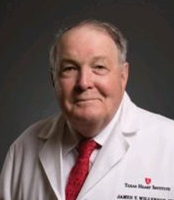
Dr. James T. Willerson is the President Emeritus, Director of Cardiology Research, and Co-Director of the Cullen Cardiovascular Research Laboratories at the Texas Heart® Institute (THI) at CHI St. Luke's Health–Baylor St. Luke's Medical Center. He served as President of The University of Texas Health Science Center in Houston from 2001-2008, and he recently retired as the Edward Randall III Professor of Internal Medicine at The UT Medical School at Houston. He holds the Dunn Chair in Cardiology Research at THI, the Willerson/O'Quinn Chair at THI, the James T. Willerson, MD Distinguished Chair in Cardiovascular Diseases at UT Southwestern Medical School in Dallas, and has a swimming scholarship named in his honor at The University of Texas at Austin.
Dr. Willerson is a Phi Beta Kappa graduate of UT Austin, where he was a four-year swimming letterman and a member of the Texas Cowboys of UT Austin. He is an AOA graduate of Baylor College of Medicine, and received his postgraduate training at Harvard Medical School and the Massachusetts General Hospital in Boston. Dr. Willerson is a member of the Institute of Medicine of the National Academy of Science. As the longest-serving Editor-in-Chief of Circulation, the journal of the American Heart Association, his tenure lasted 11 years. In addition to having served on numerous editorial boards for professional publications, he has edited or co-edited 27 textbooks, including his signature textbook, the Third Edition of Cardiovascular Medicine, released in February 2007. He has published 1,025 scientific articles in major journals.
Dr. Willerson has served as visiting professor and invited lecturer at more than 260 institutions worldwide. Included in his many awards are the "James B. Herrick Award" from the American Heart Association in 1993; the American College of Cardiology's Distinguished Scientist Award in 2000; the Distinguished Achievement Award from the Scientific Councils of the AHA in 2002; and the AHA's Distinguished Scientist Award in 2003. He was the recipient of the Gold Heart Award, the AHA's highest award, in April 2005. He has been elected a Fellow of the Royal Society of Medicine of the United Kingdom and made an Honorary Member of 10 foreign Societies of Cardiology. He is a member and past President of the Paul Dudley White Cardiology Society at HMS and MGH. In June 2004, Dr. Willerson received the Medal of Merit for Distinguished Achievements in Cardiovascular Sciences by the International Academy of Cardiovascular Sciences. In 2005, he received the "Lifetime Achievement Award" presented at the 17th Annual Transcatheter Cardiovascular Therapeutics Scientific Symposium (TCT) on behalf of the Cardiovascular Research Foundation in Washington, DC. In 2006, Dr. Willerson received the Libin Award in Cardiovascular research in Alberta, Canada; the "Living Legend Award" for achievement in cardiovascular research from the 16th World Congress of the World Society of Cardiothoracic Surgeons in Ottawa, Canada; and the "Most Outstanding Cardiologist, 2006" award from the Cardiovascular Society and Medical School of Shanghai, China. He also received the Katz Research Prize from Columbia University College of Physicians and Surgeons, New York City, New York, 2007. Dr. Willerson was elected President of the International Society for Cardiovascular Sciences based in Winnipeg, Canada, and served from 2011-2014. From 2009-2010, he served as President of the Board of the American Heart Association, Houston Chapter. The James T. Willerson Distinguished Chair in Cardiology was named in his honor at the Brown Foundation Institute of Molecular Medicine for the Prevention of Human Diseases at The University of Texas Health Science Center at Houston in 2009. In June 2009, he was elected to The University of Texas Hall of Honor for accomplishments in varsity swimming from 1957-1961 and for ongoing professional contributions in the field of medicine. In September of 2009, he received the Ray C. Fish Award from Texas Heart Institute for "An individual whose endeavors have made significant contributions to cardiovascular medicine or surgery." In 2010, Dr. Willerson was the recipient of the Special Achievement Award in Life Sciences from Houston Technology Center. In 2012, he received both the Lifetime Achievement Award from the All India Institute of Medical Sciences in Delhi, India and the Distinguished Services Award from Amity University, Uttar Pradesh, India. The University of Cadiz in Cadiz, Spain presented Dr. Willerson with an Honorary Doctoral Degree in 2012. In 2013, he was honored by the Texas Heart Institute and the Texas Medical Center by having the weekly cardiovascular seminar series named, “The James T. Willerson, MD Cardiovascular Research Lecture Series.” He was named Chair of the Scientific Advisory Board of the Trans-Atlantic Network of Excellence of the Leducq Foundation in 2014.
Dr. Willerson sees patients on a daily basis from a patient population of more than 2,000. Dr. Willerson's research concentrates on the detection and treatment of unstable atherosclerotic plaques, and the discovery of the genes and abnormal proteins responsible for cardiovascular disease. In addition, Dr. Willerson and colleagues Drs. Emerson Perin and Ed T.H. Yeh have been directly involved in seminal research in the use of stem cells for the repair of hearts and cardiovascular vessels injured by heart attacks, and they are responsible for major discoveries, landmark publications, and for Texas Heart Institute's being awarded the first FDA-approved clinical trial in the use of adult, human stem cells to treat ischemic cardiomyopathies and congestive heart failure in humans. As a result of discoveries in his research, Dr. Willerson has been awarded 15 patents.
James T. Willerson, MD
Honorary Editor-in-Chief
Clinical Medicine and Therapeutics
President Emeritus
Texas Heart® Institute, CHI St. Luke's Health–Baylor St. Luke's Medical Center, USA
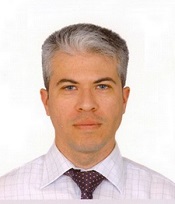
Prof. Karcioglu was born in Aydın, 1969. In 1994, He commenced his residency in Dokuz Eylul University Medical School, Department of Emergency Medicine and graduated in 1998. He completed Fellowship Program in International Emergency Medicine in Pennsylvania State University in 2005. He has served as the chairman of the department in DEU (2005-2007). He has been in charge of the ED of Bakirkoy Research and Training Hospital (2007-2009), and then faculty member in Acıbadem University (2009-15). In the meantime (2011), he also participated in the refreshment work for the Joint Commission International (JCI) certification in the Acibadem Bakirkoy Hospital. At the end of 2015 he started working in the Department of Emergency Medicine, Istanbul Education and Research Hospital, Fatih, Istanbul. He has served as a founder and a board member of The Emergency Medical Association of Turkey (2007-2009). He has published 121 articles in international journals. He contributed in three books as editor, and authored 33 chapters. His book project entitled ‘Trauma Surgery’ via InTechOpen is going on currently. He is serving as a member of The Editorial Board in several journals. He is also an instructor of the American Heart Association-based Basic and Advanced Cardiac Life Support Course. His research interests are resuscitation, advanced life support, pain management, airway emergencies, disaster medicine, trauma and toxicology.
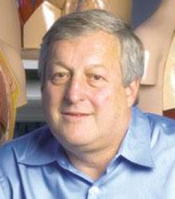
Dr. Foreman obtained a Doctor of Jurisprudence, Law, University of North Carolina, and a Master of Public Administration, Public Administration, Harvard. Dr. Foreman received his Ph.D. in Health Admin & Health Policy from University of California, Berkeley in 1994. He is an associate professor in the Department of Health Care Administration (Nursing) at Robert Morris University. His areas of expertise and research interests include health economics, healthcare policy, healthcare Industry structure & performance.
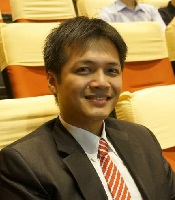
Dr. Chin-Lung Kuo is the Director of the Department of Otolaryngology, Taoyuan Armed Forces General Hospital, Taiwan, ROC. Dr. Kuo received his medical degree from the National Defense Medical Center and earned his PhD degree at the Institute of Brain Science, National Yang-Ming University, Taiwan, ROC. He completed his otolaryngology residency, chief residency, and fellowship training at the Department of Otolaryngology-Head and Neck Surgery, Taipei Veterans General Hospital, Taiwan, ROC. Dr. Kuo continues to make contributions to the scientific community. His primary field of study is otology, and his research is focused on middle ear surgery and hearing loss. Dr. Kuo has been invited to speak at international conferences and institutes. Dr. Kuo has been the first or corresponding author on more than 50 published articles in the last 5 years, including SCI original papers, review articles, as well as book chapters. In 2012, his research paper was chosen as the cover story of the journal Audiology and Neurotology. In addition, Dr. Kuo received the Outstanding Paper Award from the Laser Medicine Education and Research Foundation in 2013, and was awarded the 2015 Hayashi SPIO (Society for Promotion of International Otorhinolaryngology) Scholarship in Japan. Dr. Kuo believes that increased availability of research data can benefit both medical research and science education. For further details regarding his research, please use the following link to access his blog.
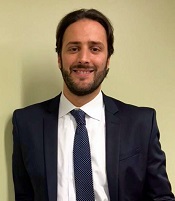
Dr. Alberto Cucca is a clinical neurologist specialized in Parkinson’s Disease and other movement disorders. He currently works as a Clinical Research Fellow at the Marlene and Paolo Fresco Institute for Parkinson’s and Movement Disorders, at New York University School of Medicine. Dr. Cucca received his medical degree cum laude at the University of Trieste, Italy. He completed his neurology training cum laude at the University of Udine, Italy. He also completed a visiting fellowship in transcranial magnetic stimulation at the City College of New York and has attended the Harvard Intensive Course in transcranial magnetic stimulation in Boston. Dr. Cucca’s main research interest is the study and treatment of refractory symptoms of Parkinson’s disease with different modalities of non-invasive brain stimulation, including transcranial magnetic stimulation and transcranial direct current stimulation.
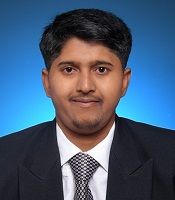
Dr. Anil T. Patil
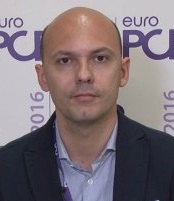
Dr. Salvatore De Rosa is an Assistant Professor at the Department of Interventional Cardiology of Magna Graecia University. Dr. Rosa is the jorunal referee of highly ranked international journals include Circulation Journal, Medicine, Catheterization and Cardiovascular Interventions, Circulation Journal, Journal of Cardiovascular Medicine, Journal of Interventional Cardiology, International Journal of Laboratory Medicine, Gene Therapy, Thrombosis and Haemostasis, European Heart Journal, Journal of the American College of Cardiology, Circulation and Circulation Research.
The clinical significance of otitis media with effusion (OME), a complication associated with cleft lip/palate (CLP), is often overlooked in children. The author reviews the pathogenesis, clinical manifestations, and diagnoses of OME in children with CLP as well as the controversies surrounding treatment. He also provides a flowchart to guide the management of OME in children with CLP.
In a recent article, Reda et al. reported about a 41-year-old patient with a classical mitochondrial multiorgan disorder syndrome, manifesting as stroke-like episodes, epilepsy, ataxia, migraine, cognitive impairment, brain atrophy, hypoacusis, short stature, hypertrophic cardiomyopathy, heart failure, renal impairment, anemia, gout, and hyperlipidemia. The authors have some comments and concerns.
Delirium is an acute disorder of arousal and attention that is commonly encountered, incompletely understood, and associated with adverse outcomes including increased morbidity and mortality, reduced health-related quality of life, and increased healthcare costs. In this narrative review, authors examine the epidemiology, potential pathophysiological mechanisms, assessment, prevention, and treatment of this cognitive disorder.
Stephen Hawking died in Cambridge on March 14, 2018 at the age of 76. He has been described as one of the greatest scientific minds in history and the most popular scientific figure since Albert Einstein. He is also a symbol of human courage and persistence, having continued in his work for decades in spite of a debilitating disease that left him confined to a wheelchair. Hawking was diagnosed with amyotrophic lateral sclerosis (ALS) in his early twenties. This rare disease leads to gradual decline of the brain’s ability to control muscles. Doctors predicted that he would live for only a few years, but the advance of the disease was slower than expected, thereby allowing him to pursue an illustrious career articulating theories of the cosmos and bringing science to the forefront of popular culture.
Epistaxis (i.e., nosebleed) is a common otolaryngologic emergency; however, it is seldom life-threatening and most minor nosebleeds stop on their own or under primary care from medical staff. Nonetheless, cases of recurrent epistaxis should be checked by an otolaryngologist, and severe nosebleeds should be referred to the emergency department to avoid adverse consequences, including hypovolemic shock or death. This paper reviews current advances in our understanding of epistaxis as well as updated treatment algorithms to assist clinicians in optimizing outcomes.